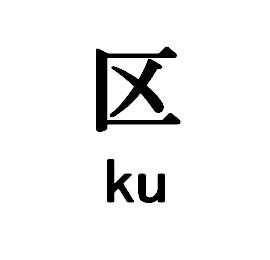
Tokyo has 23 “ku (wards)”.
Because Shibuya-ku and Shinjuku-ku are known in the world, you might know them.
It seems that many tourists from other countries complain about “they hardly find signs written in English in Japan”.
Today, I want to share an interesting article written by a Japanese blogger.
It is about an English translation on sings and websites.

This is a website of Kita-ku, Tokyo. It says “City of Kita” in English.
Other “ku” are mostly written xxx City.
For example, on the website of Shibuya-ku, it says “Shibuya City” in English.


Meanwhile, Ota-ku is written City of Ota on a sign.
By the way, it can be written “Ota ku” on mailing address but it may confuse with “otaku” LOL.

This is a sign of Shibuya-ku.
Unlike the website, the sign says “Shibuya Ward”.
There’s difference in the translations.
Please tell me what the proper word for “ku” is!
Source: Daily Portal Z
This is the JAPAN Style!
You should follow me on Twitter.









I think the best English translation would be “borough”. New York and London, both similar in size to Tokyo, use this word to describe the sizable neighborhoods that collectively form their respective metropolises…. but I’ve also seen the word “district” used when translating the neighborhoods of Shanghai, Paris and Istanbul…. =(
It’s difficult, huh!!! 😀
Thank you for your comment. I looked up “borough” and it was translated “ku” in Japanese, so it works! Shibuya borough, Shinjuku borough.. It even makes the cities sound cooler! I think the word “district” is sometimes used for “ku” too.
Most often, I’ve seen it translated as “ward”. Where I live (northeast Wisconsin, USA), cities are divided into wards, each with a number, for example, the Fifth Ward. They are used mostly for deciding where residents go to vote. “Borough” is used in New York City, but I don’t know if it’s used anywhere else.
Thank you for your comment. From what you told me, the closest word for “ku” seems to be “ward”. I like the sound of “brough” though LOL. BTW the translation of New York City’s bough in Japanese is “ku”.